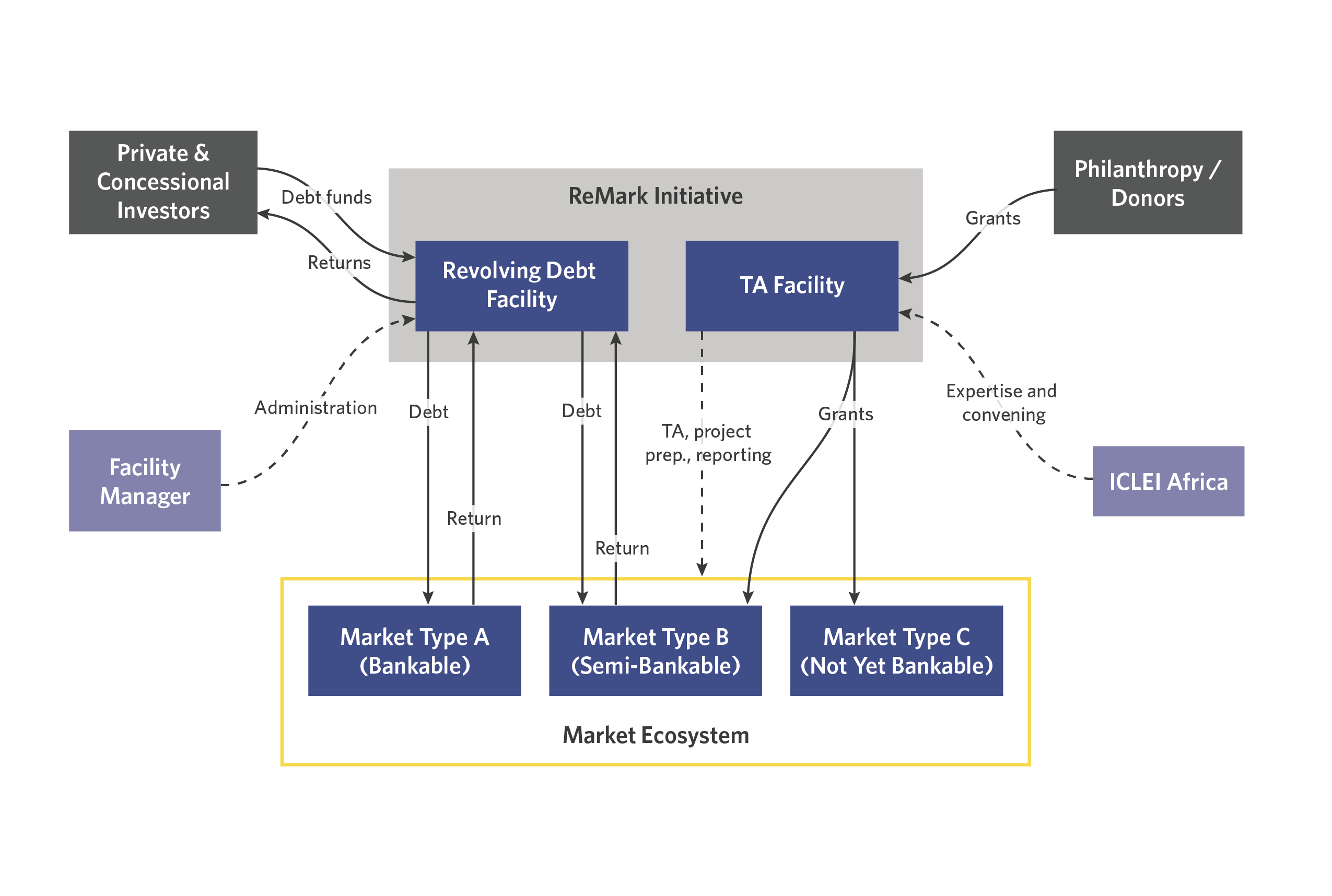ReMark’s blended finance facility supports municipal markets across Africa to build urban infrastructure resilience, reduce food waste, improve food security, safeguard vulnerable livelihoods, and reduce greenhouse gas emissions.
ABOUT
Urban food markets are a primary node of infrastructure on which the urban food system is built across Africa. However, climate-induced weather events such as extreme heat and intense flooding pose accelerating risks to both the specific assets and activities of these markets as well as the broader agrifood systems in which they are situated.
What’s more, markets across Africa face significant challenges in accessing commercial capital and lack suitable finance mechanisms to respond to these risks and advance climate resilient development.
Adaptation finance is particularly scarce for agrifood systems in general; representing just 1.1% of total projectlevel climate finance globally. Despite Africa’s rapid urbanization, this funding has been rurally biased and neglected the urban components of the food system
INNOVATION
Designed to address the central barriers that have hindered investment in climate resilient food systems, ReMark is the only facility that provides debt and concessional resources to build the climate resilience of urban retail food markets across Africa. The instrument is unique among facilities aiming to address the climate finance gap facing Africa’s urban agrifood system due to its exclusive focus on local currency finance to invest in long-term market infrastructure that underpins the food security of Africa’s rapidly growing cities. By providing financing and technical assistance, ReMark supports upgrades to a wide array of food markets with the aim of making them more climate resilient while also improving their commercial performance and ability to distribute food.
“Our organization is receiving a growing number of requests for support with market upgrading from the cities and local governments we work with. We believe food markets are a critical entry point for adaptation and mitigation efforts in the African food system.”
Luke Metelerkamp, Senior Professional Officer at ICLEI
IMPACT
ReMark aims to improve the climate resilience and utilization of urban food markets across Africa by providing markets with access to finance for upgrades. The facility can deliver outcomes for both climate adaptation and mitigation through retrofits and expansions of a range of urban food markets.
A well-functioning food market can deliver enhanced systemic resilience of markets’ assets and activities to climate-induced risks and disasters, reduced emissions through new renewable energy sources and improved waste management practices and empowerment of local market traders to serve as environment change agents. Investment in urban market infrastructure also yields strong potential for a gender-responsive approach as the majority of livelihoods supported within and around these markets are female.
DESIGN

ReMark will consist of a revolving debt and grants facility that will invest in urban food markets across Africa to provide finance, as well as a technical assistance facility to support markets in improving operations and preparing resiliency retrofit projects for investment.
The revolving debt facility will issue capital expenditure (CAPEX) loans with ticket sizes ranging from USD 0.5 to 15 million, with amounts corresponding to differences in market sizes and commercial structure. These will be issued to highly and moderately functioning markets. Market owners will take on this debt to invest in resiliency upgrades and service their loans with revenue growth provided by service fees collected from users of upgraded facilities and potentially government incentives. The debt facility will be managed by an external fund manager and will use a de-risking mechanism for its loans, likely an unfunded guarantee.
The TA facility, managed by ICLEI Africa, will consist of a project preparation facility (PPF) and capacity-building support for markets. The PPF will prepare markets to take on loans, help market owners identify resiliency retrofits, and support necessary preparation work.

